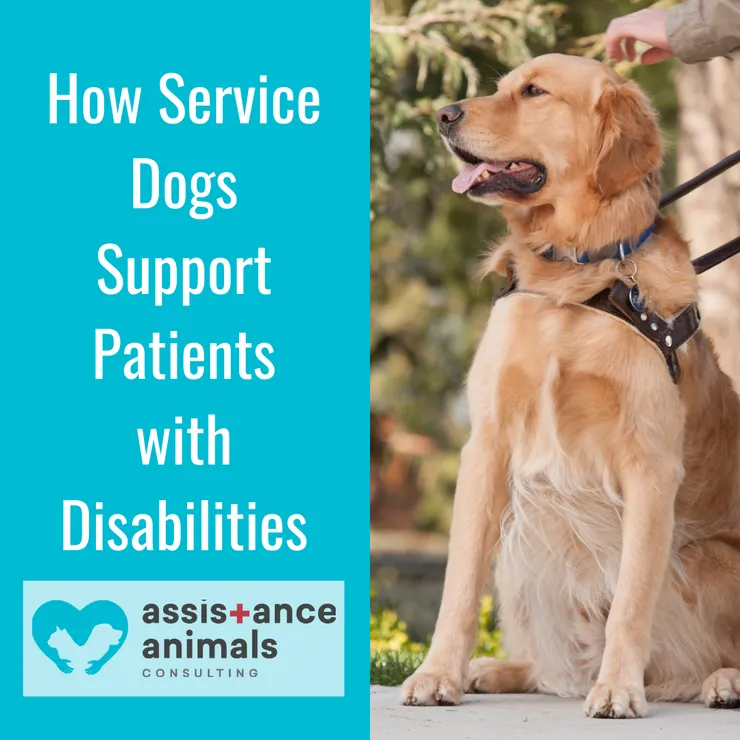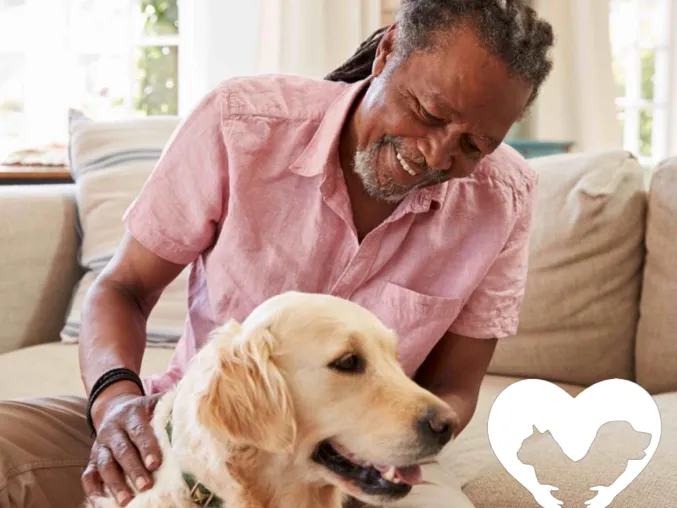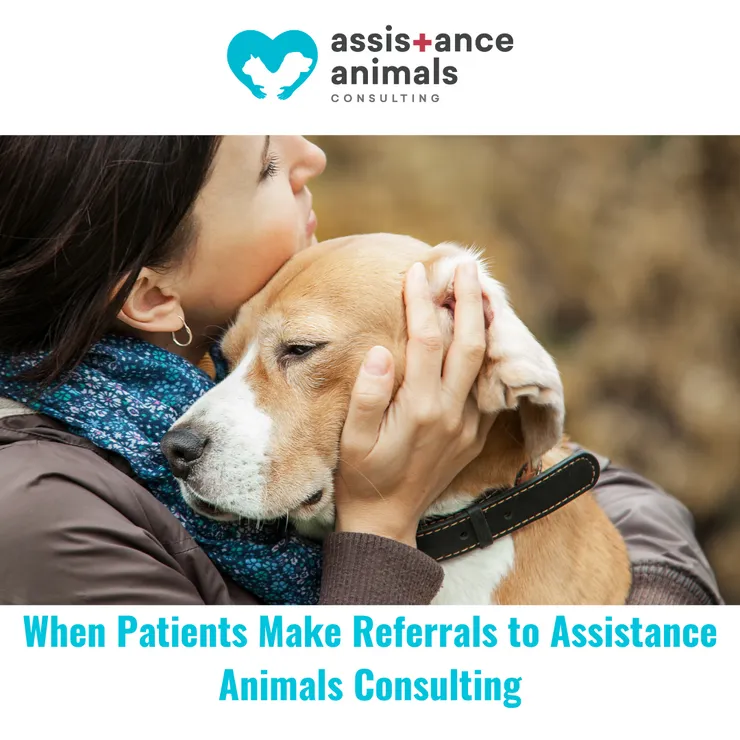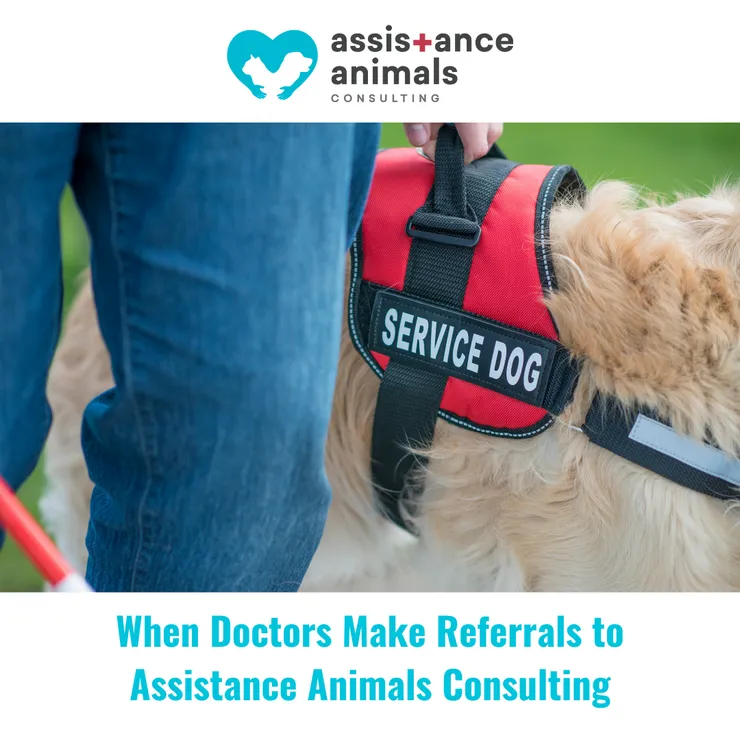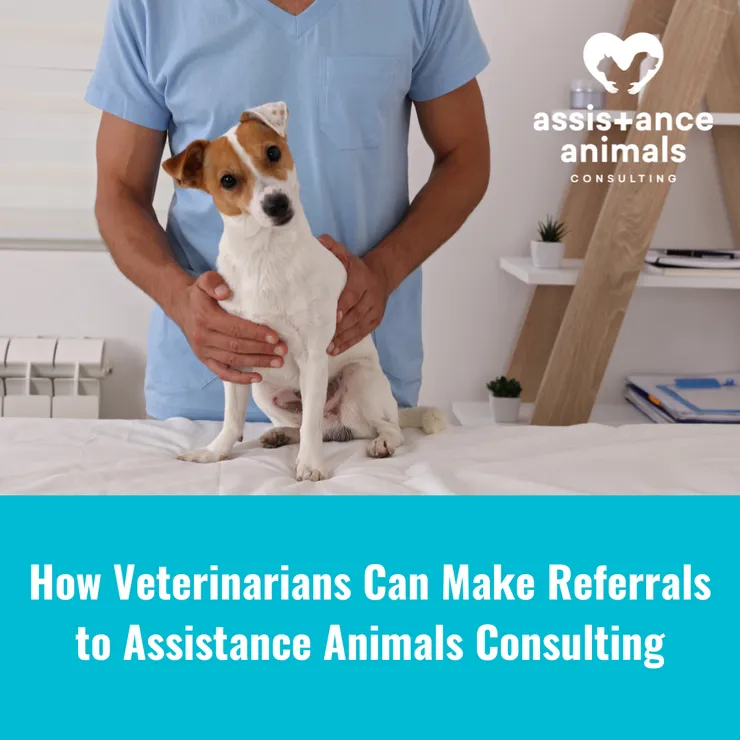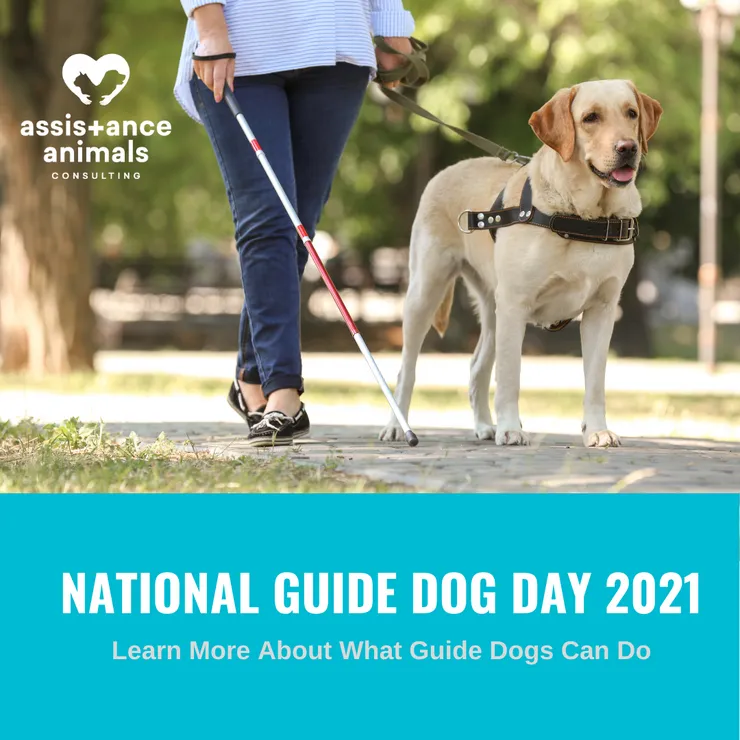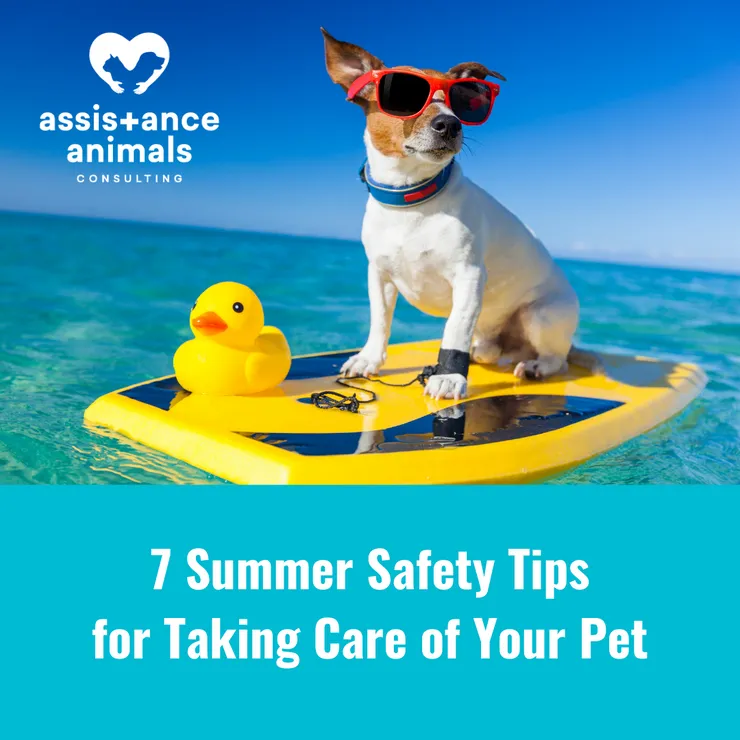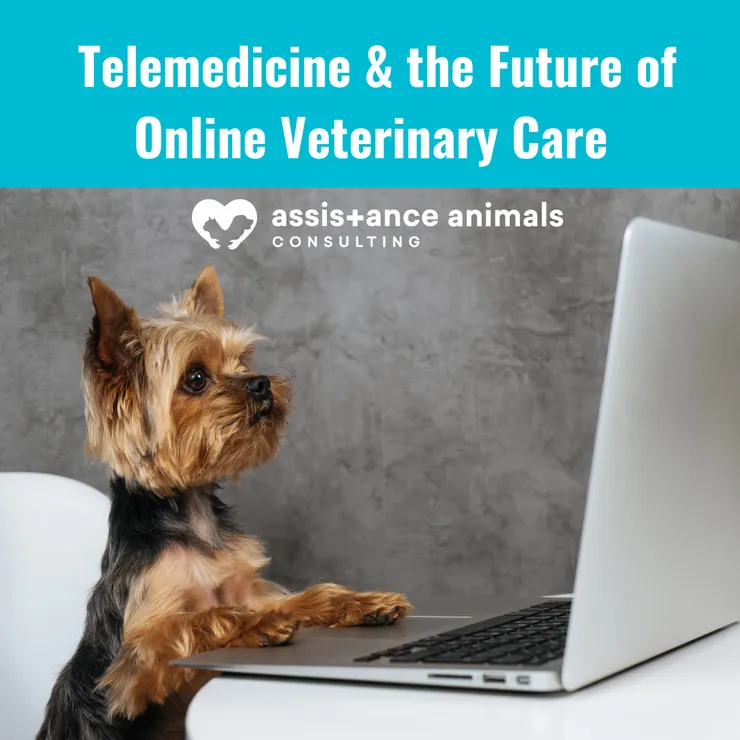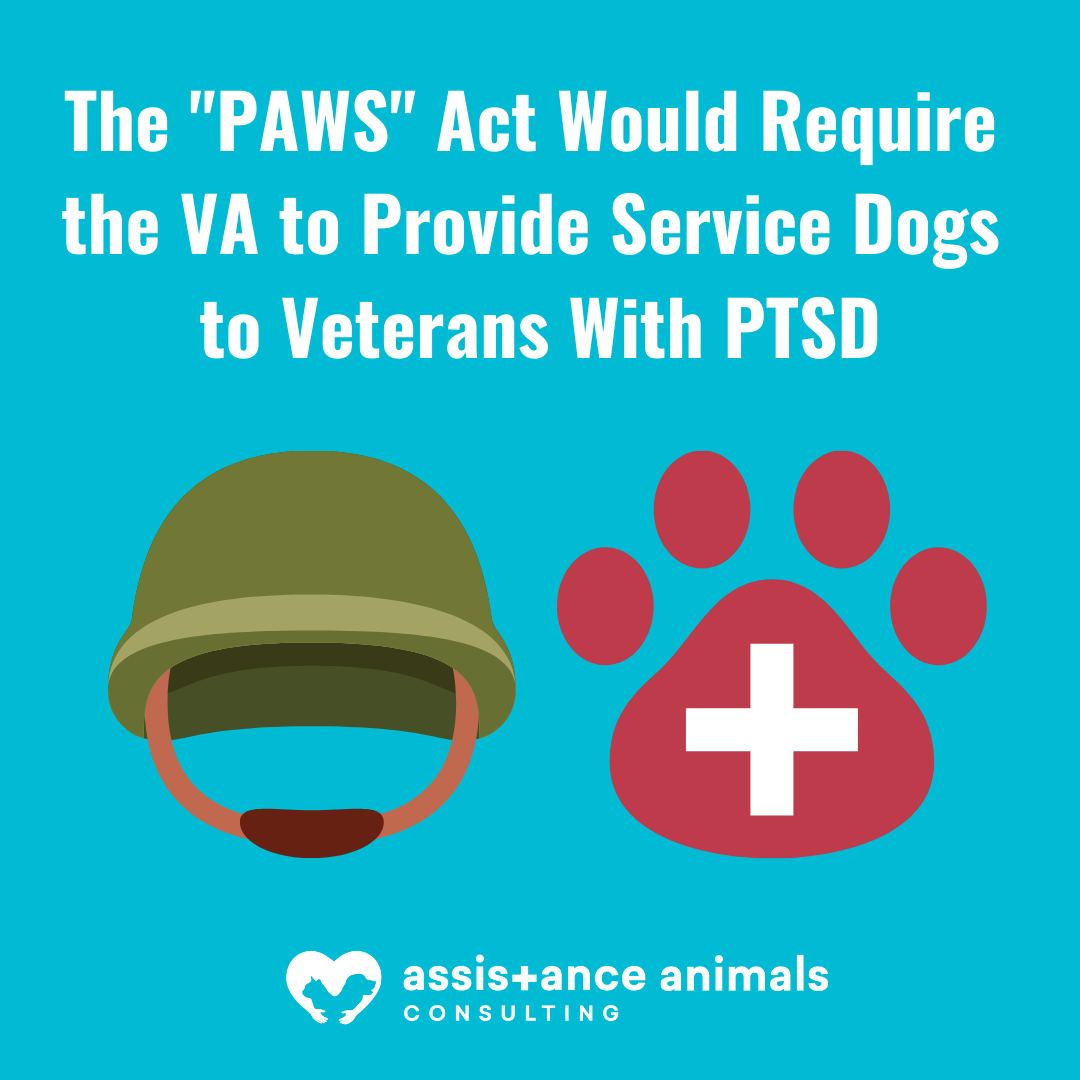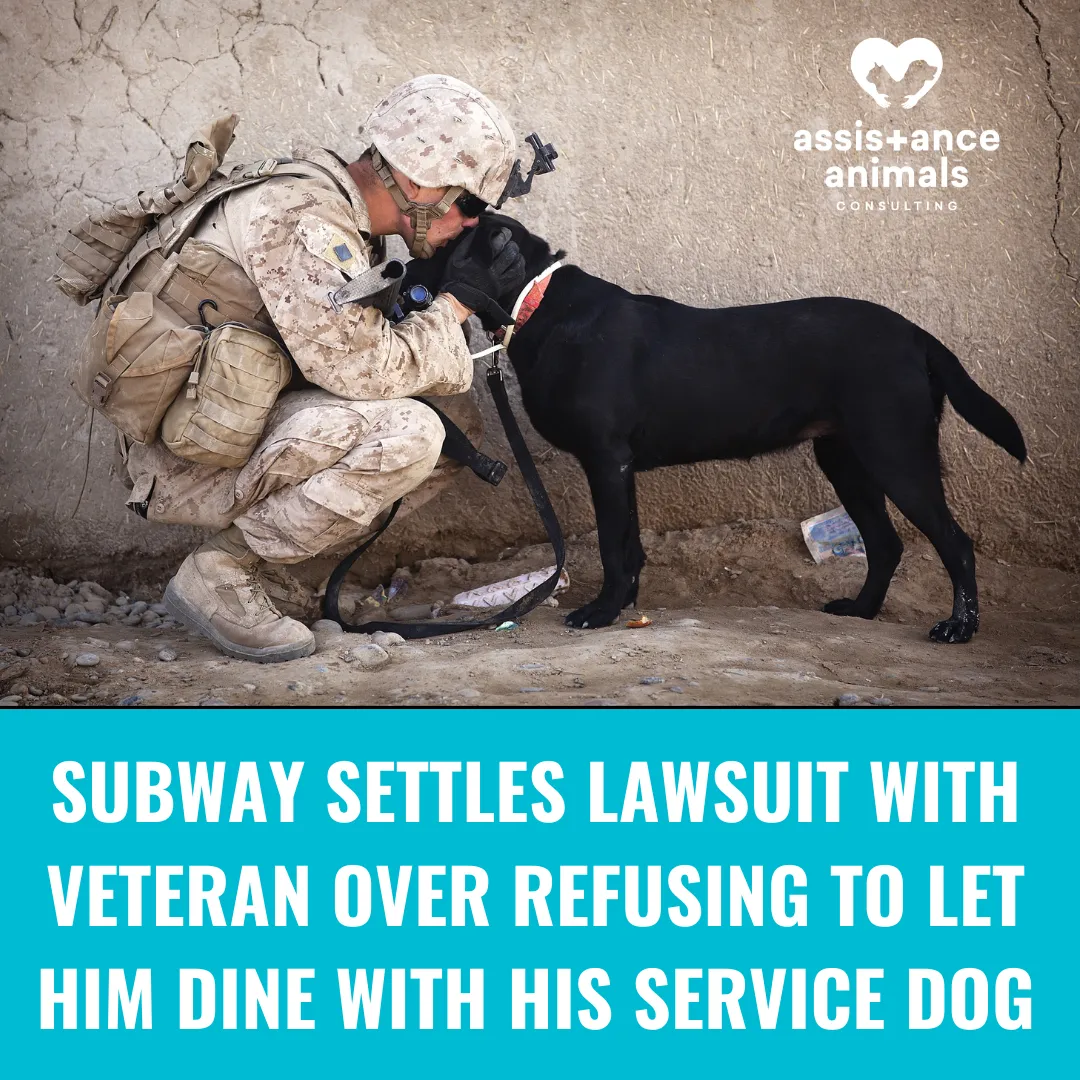As social distancing and preventive measures are still in place for the novel coronavirus, it’s important to think about your animals. This upcoming month is National Pet Month. Maintaining animal health and welfare is critical to our own health, the animal and the public — even during a pandemic. Heart worm protection and flea and tick prevention as well as general animal checkups helps preserve human and animal hygiene. This is especially important for handlers with service dogs, emotional support animals and therapy animals. For your assistance animal to be able to help you, they need to be healthy. Assistance animals work and perform tasks based on disability-related needs or provide emotional support that alleviates one or more symptoms or effects of a disability. Handlers depend on their assistance animal every day and that hasn’t changed. Assistance Animals Consulting is here to help you navigate new challenges that you may be experiencing from COVID-19.
Here to Help: Navigating Animal-Assisted Therapy During COVID-19
Here to Help: Navigating Animal-Assisted Therapy During COVID-19
As you are staying at home with your service, emotional support or therapy animal, we want to reassure and inform you of ways to maintain your animal’s health and wellness and your own. COVID-19 has brought several concerns to the veterinary community. Can the virus spread to humans from animals or to animals from humans? During the past several months, the American Veterinary Medical Association (AVMA) has been gathering information related to the outbreak to address concerns about the transmission of the coronavirus to or from animals. The AVMA explains the primary route of transmission is from person to person. Transmission from touching a contaminated surface or object (a fomite) and then touching the mouth, nose or eyes is possible but has proven to be a secondary route. Transmission from porous materials such as paper money and pet fur isn’t as likely or easy as from smooth, non-porous surfaces.
Dr. Radford G. Davis, a public health professor who specializes in building and enhancing animal and public health programs around the world, has addressed concerns that animals could serve as fomites for transmission of COVID-19, particularly if the animal belongs to someone who has contracted COVID-19. Dr. Davis reports that there is no evidence that animals can be fomites for the coronavirus and that inanimate objects associated with animals such as collars, leashes, food or water dishes have proven not to be sources of virus transmission. The AVMA also reports zero situations where the virus has been transmitted by contact with animal hair or animal skin, and there has been “no evidence the virus that causes COVID-19 can spread to people from the skin or fur of animals.” Consider the following recommendations to better the effectiveness of your human-animal partnership, especially as COVID-19 precautions continue.
1. Continue consulting with a veterinarian to maintain animal health and welfare for your assistance animal.
Veterinarians have been named an essential service, so make sure you are in contact regularly with a veterinarian to receive guidance on your animal’s health. Your animal could contract a zoonotic disease that can be life threatening if passed along to someone and can affect the animal’s well-being and ability to provide benefit to you. It’s important to take preventive measures and receive screenings to reduce the risk of your assistance animal contracting a zoonotic disease. Most veterinarians are using tele-health methods and curbside evaluations to connect with clients. Handlers, contact us for health recommendations and tips for engaging with your assistance animals during this time at home for your service, emotional support or therapy animals.
2. Wash your hands frequently, especially after handling animals, their food, waste or supplies.
The Centers for Disease Prevention and Control also confirms that “at this time, there is no evidence that companion animals, including pets, can spread COVID-19 or that they might be a source of infection in the United States.” However, because all animals can carry germs, practice healthy habits around your assistance animals. Clean up after your animals often, and contact a veterinarian if you have questions about your animal.
3. Practice appropriate measures with your animals to respect social distancing.
The AVMA suggests not letting animals interact with people or other animals outside of your household, keeping cats indoors if possible, walking dogs on a leash and maintaining six feet from other people and animals. It’s good to get outside with your animal, but avoid public places where a large number of people and dogs may gather.
4. Make sure you are prepared with an emergency response plan for your assistance animals.
Just like you need to know what to do in a health emergency, you also need to plan for emergencies with service, emotional support or therapy animals. The AVMA advises to make sure you have at least two weeks’ worth of animal food and any needed medications for quarantine and self-isolation when you cannot leave your home. If you become ill with COVID-19, it’s advised to take precautionary measures for your animal. Dr. Davis recommends wearing a face mask around the animal; washing hands before and after contact with the animal; avoiding hugging, kissing and sleeping with the animal (as well as being licked); and not sharing food or bedding with your animal or allowing them to lick utensils, cups and other items.
Handlers, it’s important to have a care plan in place for your assistance animal during this time. Consult with Assistance Animals Consulting to receive the appropriate measures that should be included in an emergency plan for service dogs, emotional support animals and therapy animals.
